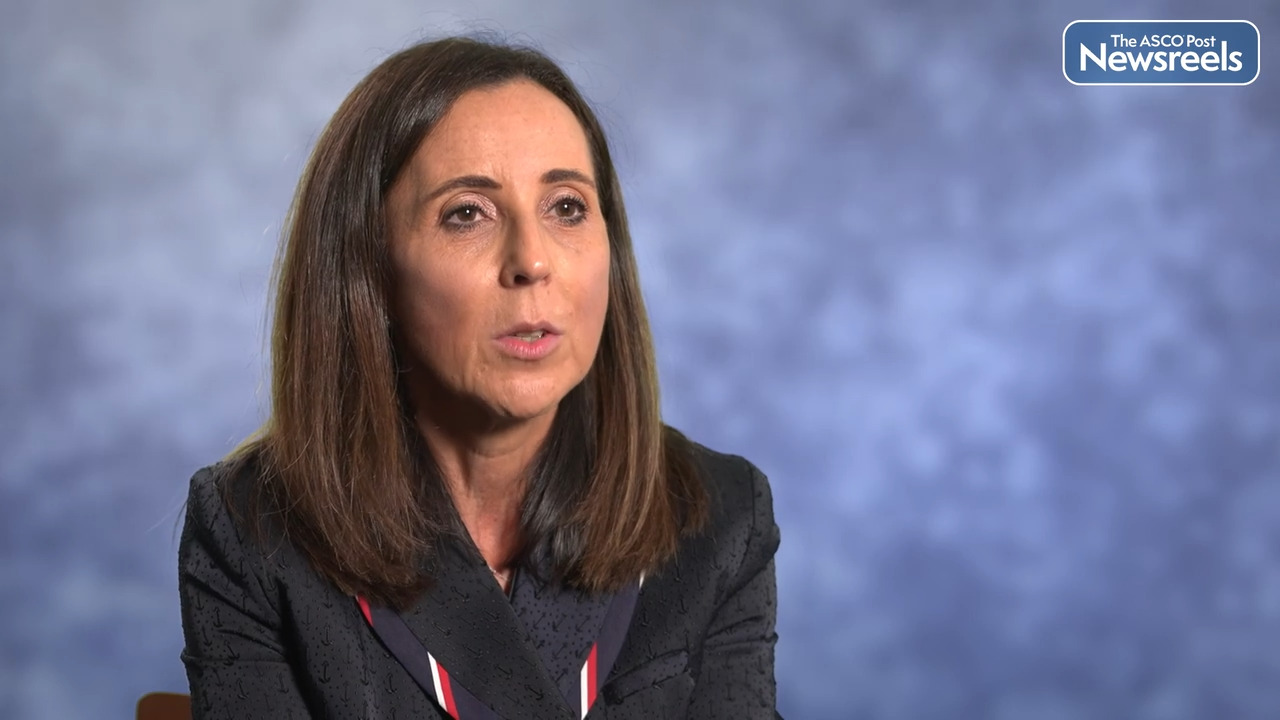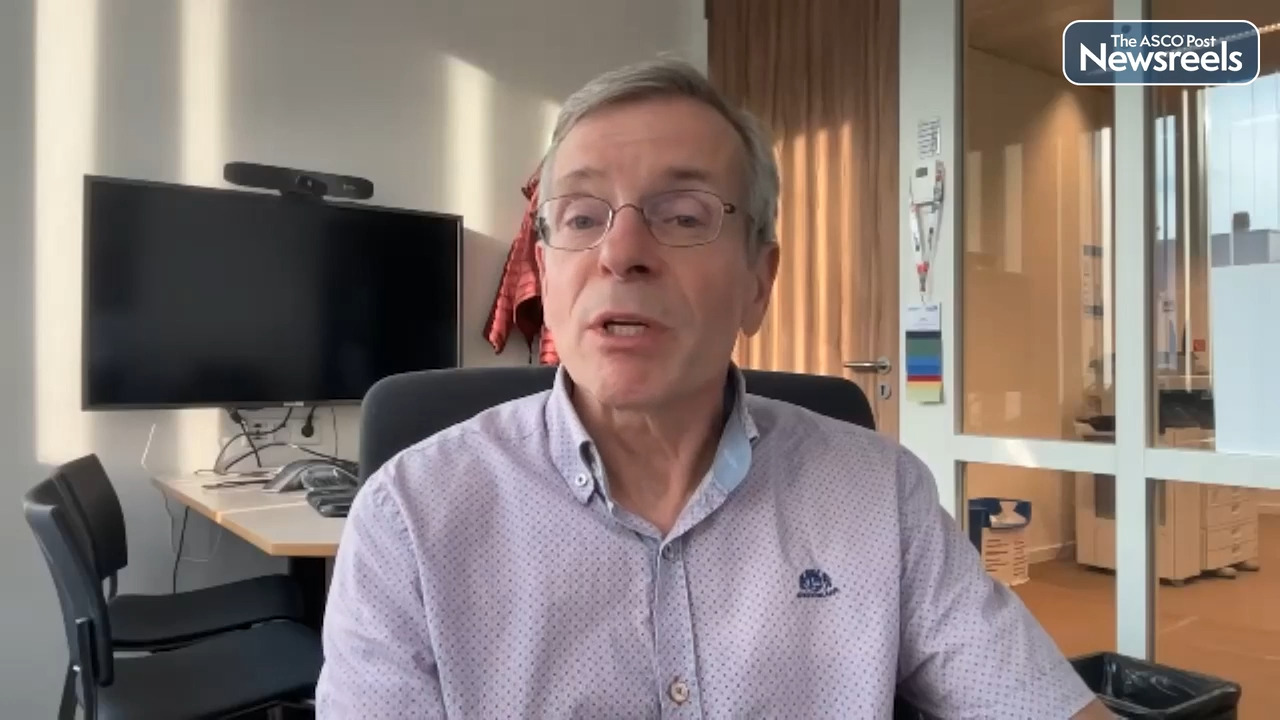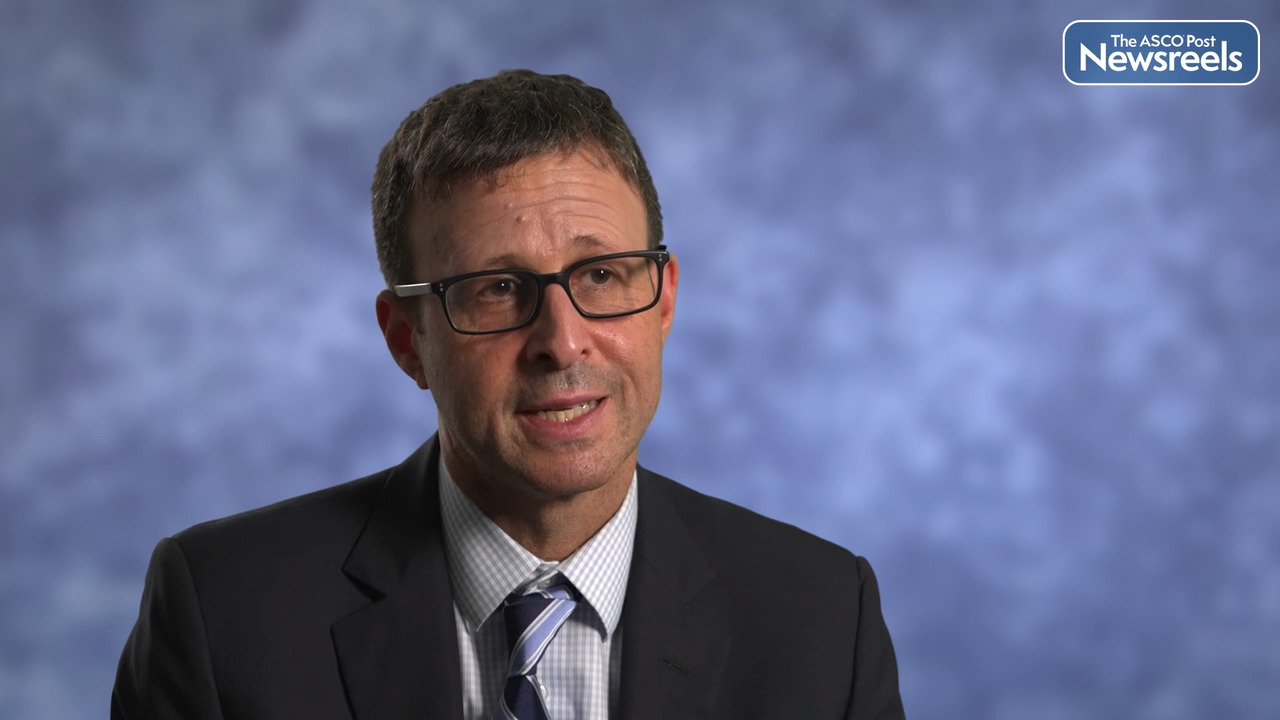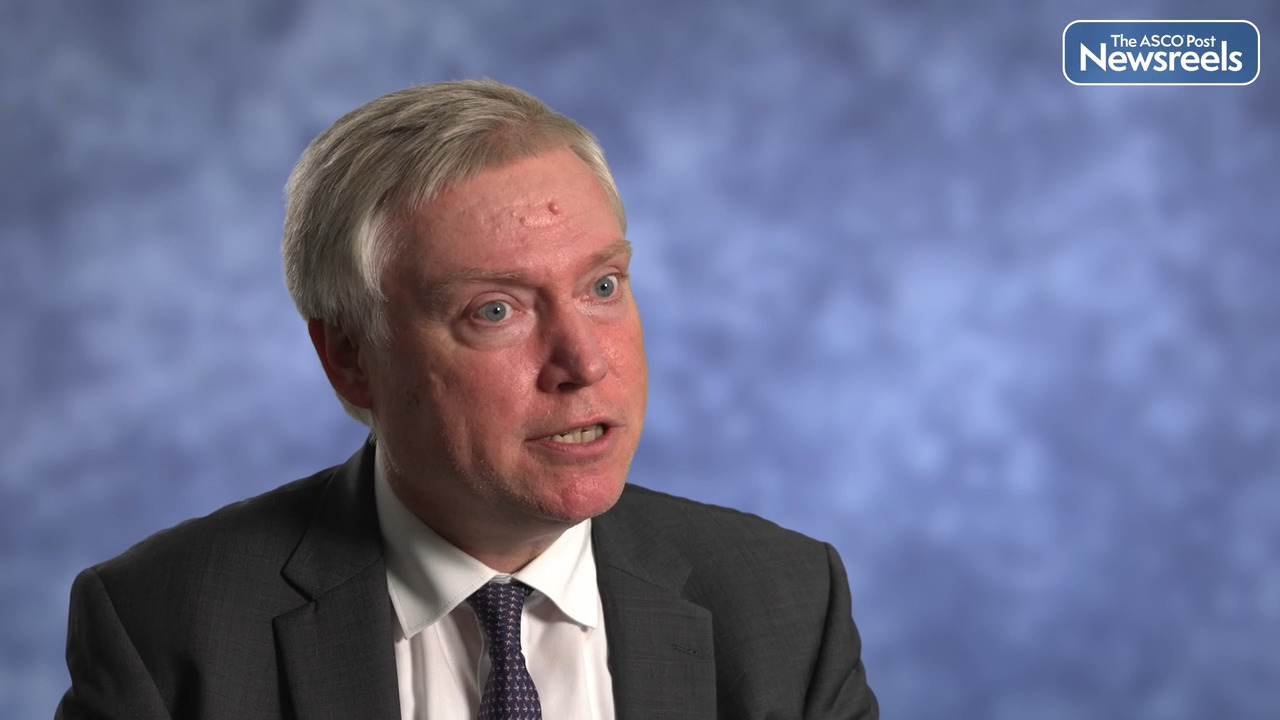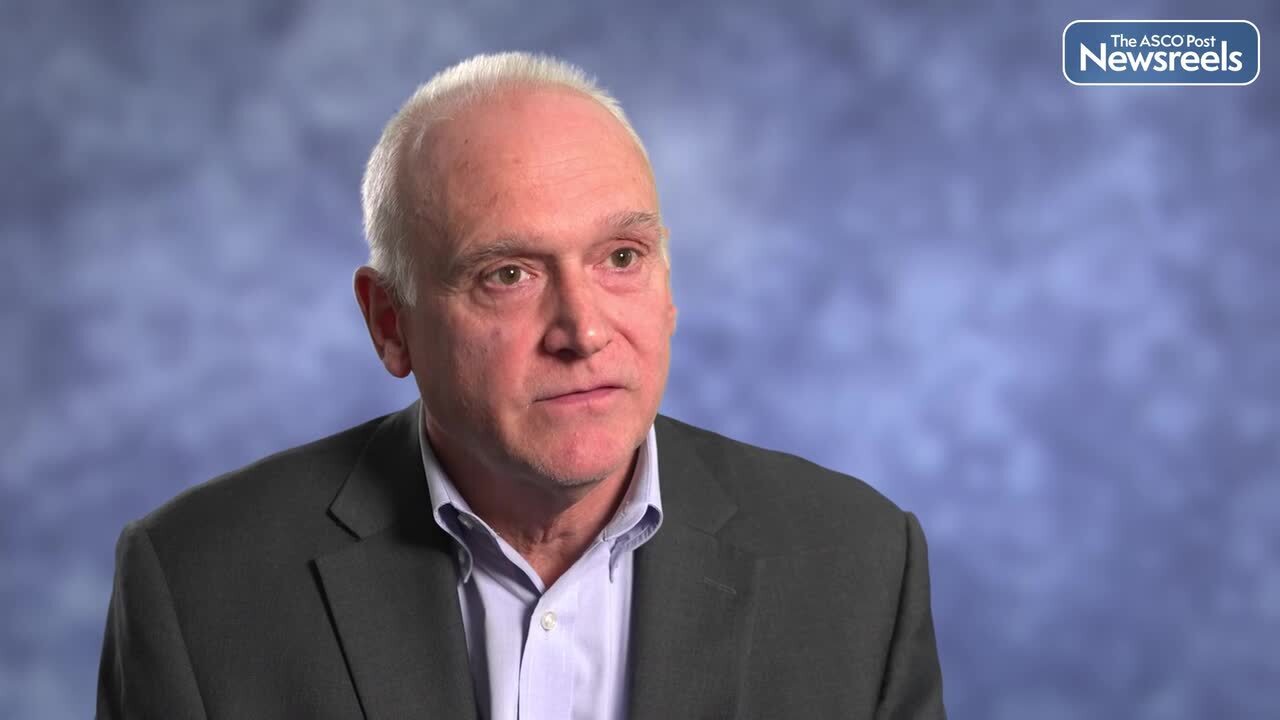Transcript
Disclaimer: This video transcript has not been proofread or edited and may contain errors.
Toni K. Choueiri:
Professor Albiges, really, it's great to be back in person at ESMO 2022 à Paris where you live and work and exciting data in kidney cancer. You have presented a part of an oral presentation, a session, results in unclear cell renal cell cancer in untreated unclear cell RCC. Tell us a bit about this first time presented study of pembrolizumab and lenvatinib.
Laurence Albiges:
Professor Choueiri, thank you for the highlight. Well first it's a pleasure to have everyone back in person here in Paris for this ESMO 2022. The B61 study is an important study. As you mentioned, this is the first time this data is being presented. It's a non-randomized phase II exploring the combination of lenvatinib plus pembrolizumab in patients with non-clear cell RCC. We do know it's an unmet need, we know those patient has worse prognosis and usually don't respond well to our classic VEGF TKI. What the study reports is a high response rate, 48% of overall response rate in the first 82 patients that have been enrolled in the study, more than 50% in patient with papillary RCC. We see the similar response rates with unclassified RCC or translocation RCC. However, limited benefit, unfortunately, with chromophobe RCC. What I want to stress is that there is clearly a good safety management in this study, meaning no new safety signal when compared to the prior report of lenvatinib plus pembrolizumab. The data are still maturing because we only have eight months follow up, so median PFS and OS are not yet reached.
Toni K. Choueiri:
That's great. Are you planning the next study, a randomized trial, where the experimental arm is pembrolizumab-lenvatinib?
Laurence Albiges:
It's a good question. I think the field should push forward having a trial within each subset of tumor. You are paving the way with the papillary MET inhibitor. I think we should push towards more specific trials in each subtype.
Toni K. Choueiri:
I agree. We have trials looking at the different combinations. Some of them are VEGF-directed, other are specifically MET-directed, whether selected or unselected. Another thing in renal cell cancer, this new target, HIF2, that we thought for a long time that this transcription factor was not going to be able to target until belzutifan came on. You're involved with some of the study as well?
Laurence Albiges:
Absolutely.
Toni K. Choueiri:
Yeah.
Laurence Albiges:
I think one of the questions is, where does this agent fit in our treatment landscape? And should it be considered as a single agent or a combination? You are reporting, at this ESMO, a combination study in first-line of cabozantinib plus belzutifan. Can you tell us more?
Toni K. Choueiri:
Yeah, no, I think it's an interesting combination, because actually it doesn't have, surprisingly, an immune checkpoint to blocker in first line. So there are some patients that had, significant number of patients with severe risk. Nevertheless, the safety profile of combining the VEGF-TKI cabozantinib AT full dose, 60 milligram once a day, with the HIF2 inhibitor belzutifan, in term of safety, it wasn't different from what we reported in patients previously treated. So, cabozantinib, we need to have significant dose reductions and belzutifan, less so. But very few patient discontinued study treatment because of toxicity.
What we've seen, knowing the follow-up remains short, is a response rate of 57%. That's quite really compelling. We've seen a progression-free survival in this single-arm study, with all the limitations of single-arm studies, of 30 months, which it's an actuarial rather than an actual PFS, simply because the median follow up is shorter than the actual PFS. That's quite encouraging, and what I encourage most about is no patient had PD as best response. So I think that bodes well for the ongoing combination, one in the second line, not with cabozantinib, with lenvatinib, and belzutifan. Another one in the first line with also lenvatinib, belzutifan, but also the pembrolizumab. Until we wait, we're both involved in 005, which is single-agent belzutifan versus everolimus in heavily pretreated patients. So, really exciting ESMO 2022 and it's so good to be back in Paris and having the wonderful food.
